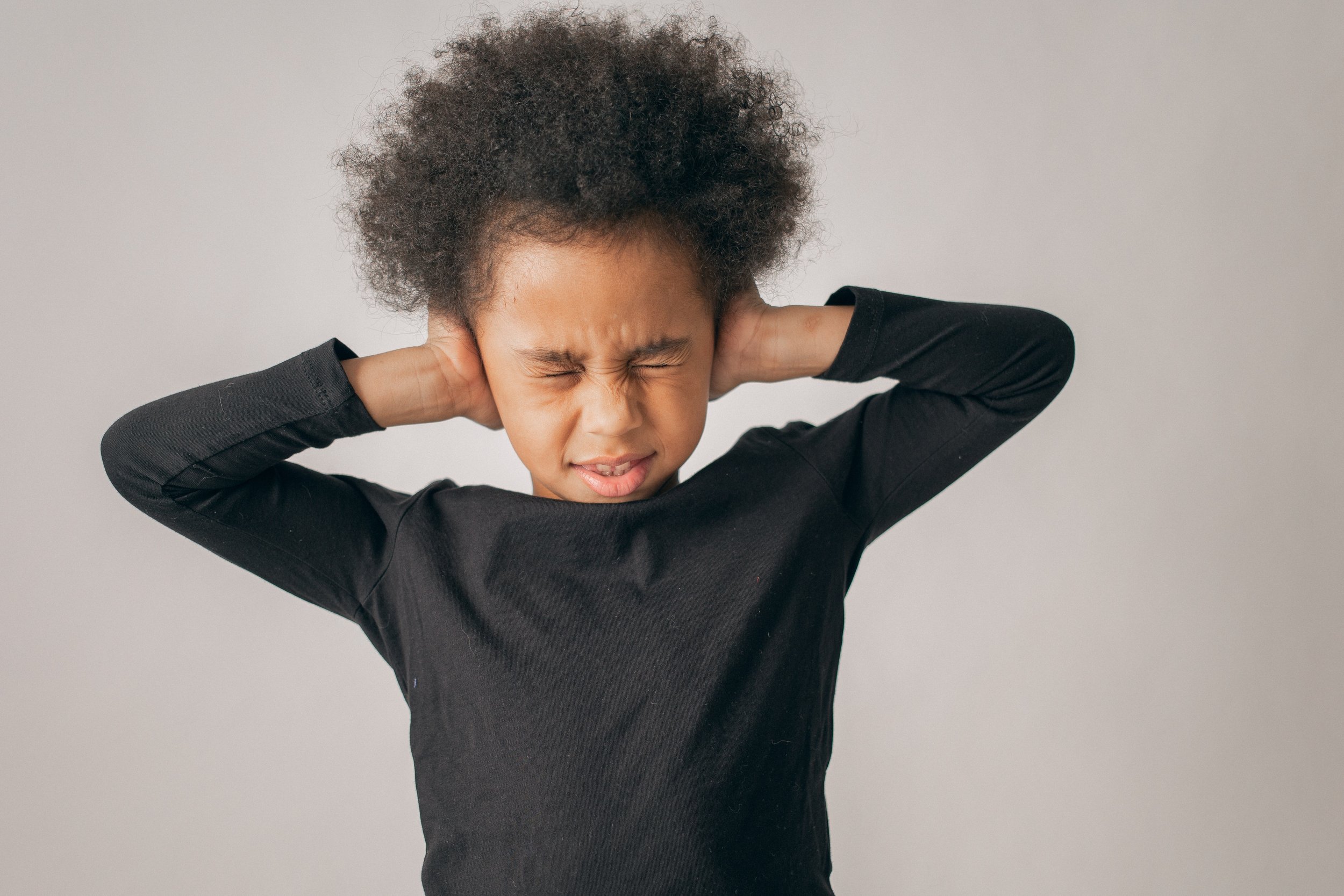Sensory Avoiders
Music For Kiddos Podcast
Listen on: Apple Podcasts | Spotify | Amazon Music | Stitcher
Sensory Avoiders and Sensory Seekers, what’s the difference? And, why is it important for us as music therapists and music educators to know about this?
If you have been reading the blog or listening to the Music For Kiddos Podcast, you may be familiar with my approach to working with children, which is sensory-based. That means that, every time I walk into a room and I am working with kids, I am looking for how their sensory systems are impacted by music. On episode one of the podcast and on this blog post, I gave a brief overview of this sensory-based approach is and provided a general idea of what sensory avoiders and sensory seekers are. On today'‘s blog post and on episode 44 of the Music For Kiddos Podcast, we’re diving a little deeper specifically on the concept of sensory avoiders.
Why is it important for us as music educators and music therapists to know about this topic? Taking a sensory-based approach and recognizing which of our students appear as either sensory avoiders or sensory seekers, above all, increases our empathy for the kids that we work with.
There is no such thing as a bad kid. I believe that so strongly, and this is information is a piece of that puzzle and a reason why somebody might identify a kid as “bad kid” when in reality, it might just be something related to their sensory system.
Sensory Avoiders
Sensory avoiders tend to be the kids who have their hands over their ears and who tell you that it's too loud and who are maybe called “too sensitive” in the classroom— a term I dislike very much, but they're just a little bit more sensitive to their sensory environment.
Sensory avoiders tend to have bigger reactions to sensory input. For example, a loud sound might make them jump exceptionally high, a siren might make them cry, and there are other things in their environment that they are extra responsive to.
A person is not one or the other necessarily, they're not just a sensory seeker or just a sensory avoider. Often, they're a combination of both in some way, shape or form but I have found that most people lean one way or the other.
Generally speaking, most people would call themselves either a sensory seeker (they like sensory input) or a sensory avoider (they like to avoid those extra sounds or input).
So, what are you? Are you a sensory seeker? Are you a sensory avoider?
If you're both, can you identify some ways that you're both: maybe you like to listen to podcasts in the car instead of music because sometimes music can be overstimulating— maybe you're an avoider in that way. Perhaps you like strong tastes, like spicy food or food with a bang— in that sense, you can be a sensory seeker.
When we're talking about sensory avoiders, one of the primary things that we can see is that sensory avoiders tend to be the people that appear overwhelmed because the environment that we live in is sensory rich, generally speaking. There's fluorescent lights, there's loud music. It's sensory rich at school, there are a lot of kids around, there's a lot of color on the walls, the lights are bright, there's a lot of sound going on, etc. Our environment tends to be pretty sensory rich. So, what we're doing with sensory avoiders is we're just helping them be aware of the fact that they're sensory avoiders and we give them some strategies so that they can cope with a larger sensory environment.
How can we help kids who appear to be more sensory avoiders in our music lessons and sessions?
Listen to episode 44 of the Music For Kiddos Podcast, where I share some tips and some personal experiences as a mother and music therapist on making the sensory environment a little more comfortable for sensory avoiders.
We have partnered with West Music to offer free shipping on orders above $59.95 to Music For Kiddos Podcast’s listeners. Check out their incredible instruments and their incredible offerings at WestMusic.com or you can place your order at their customer service hotline at (800) 397-9378.
The code for free shipping is KIDDOS25. Make sure to check them out!
LET’S KEEP IN TOUCH!
Song-of-the-Month Club (FREE!)
THANKS FOR TUNING IN TO THE MUSIC FOR KIDDOS PODCAST!
Thanks for joining us on the Music for Kiddos podcast! If you enjoyed this episode, please head over to Apple Podcasts and tell us what you think by leaving a review! Don’t forget to sign up for the Song-of-the-Month-Club to receive a free, high-quality original song every month, or hang out with us on Instagram to stay connected.

